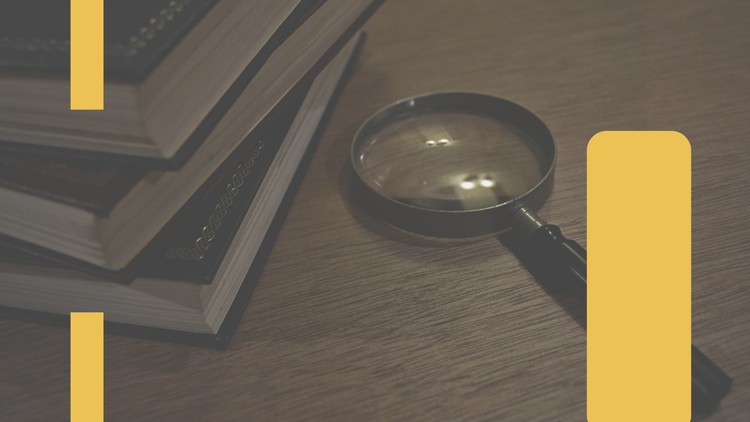
Applications of Literature journalism and critics, different objectives, elements, meaning and importance
What you will learn
You will learn the Objectives, Meaning and importance of Literature journalism and critics which have a great importance in modern day’s world.
You will be able to learn about the different objectives of Literature journalism and critics which is helpful for the future and professional growth.
Learn about all the important elements of Literature journalism and critics such as creativity, thinking skill and presentation skill.
Learn about all the types of Literature journalism and critics.
This course also helps you to understand about the applications of Literature journalism and critics with practically.
Why take this course?
course title: Mastering Literary Journalism and Criticism: A Comprehensive Course on Storytelling, Writing, and Analysis
course description:
This comprehensive course is designed for aspiring journalists, writers, and critics who wish to master the art of literary journalism and criticism. Students will explore the nuances of various literary forms, from poems to novels, and understand the impact of different movements in literature. The course also delves into the diverse styles and approaches within journalism, from news reporting to data-driven investigations. Through a blend of theoretical knowledge and practical application, participants will learn to craft compelling narratives that resonate with readers, analyze literary works with depth and insight, and critically engage with the broader cultural context of these writings.
Course Outline:
- Introduction to Literary Journalism and Criticism
- Overview of the course
- The intersection of literature and journalism
- Historical context and evolution
- Exploring Literary Forms
- Poetry: Lyrical, Epic, Narrative, Free Verse
- Drama: Tragedy, Romance, Historical, Comedy
- Creative Nonfiction: Memoir, Personal Essay, Travelogue, Literary Essay
- Understanding Movements in Literature
- Romanticism
- Realism
- Modernism
- Postmodernism
- The Craft of Journalism
- News Reporting and Feature Writing
- Investigative, Editorial, Broadcast, Online, Sports Journalism
- Data and Science Journalism
- Political, Health, Business Journalism
- Literary Journalism: Characteristics and Techniques
- Scene Setting, Character Development, Dialogue, Narrative Structure
- Point of View, Literary Device, Journalistic Integrity
- The Importance and Future of Literary Journalism
- Analyzing the role and relevance of literary journalism today
- Exploring new frontiers in storytelling
- Introduction to Literary Criticism
- Understanding different critical approaches
- The importance of context and interpretation
- Types of Literary Criticism
- Formalism/New Criticism, Historical/Biographical Criticism
- Marxist, Psychoanalytic, Feminist, Postcolonial Criticism
- Structuralism, Eco Criticism, Queer Theory, Deconstruction, Reader-Response Criticism, Cultural and Myth Criticism, Disability Studies
- Analyzing and Evaluating Literature
- Developing critical skills for literary analysis
- Comparative studies, thematic exploration, genre analysis
- Assignments and Projects
- Weekly writing assignments to practice different forms and techniques
- Critical essay projects to apply various forms of literary criticism
- Group discussions and presentations on selected readings
- Final project: A comprehensive piece of literary journalism or a critical analysis on a chosen topic, combining insights gained throughout the course
Learning Outcomes:
By the end of this course, students will be able to:
- Demonstrate a deep understanding of the various forms and movements within literature.
- Analyze and critique literary works from multiple critical perspectives.
- Apply journalistic techniques to create engaging and well-crafted narratives.
- Evaluate the role and influence of literary journalism across different media platforms.
- Critically engage with contemporary debates on literary criticism and its relevance in today’s world.
- Develop a portfolio showcasing their work in both literary journalism and literary criticism.
Course Format:
The course will be delivered through a combination of lectures, readings, discussions, and hands-on assignments. Students will engage with a diverse range of texts, from classic literature to contemporary news articles, and will have opportunities for peer review and feedback. The course will also incorporate guest lectures from leading figures in the field, providing students with a holistic understanding of literary journalism and criticism.